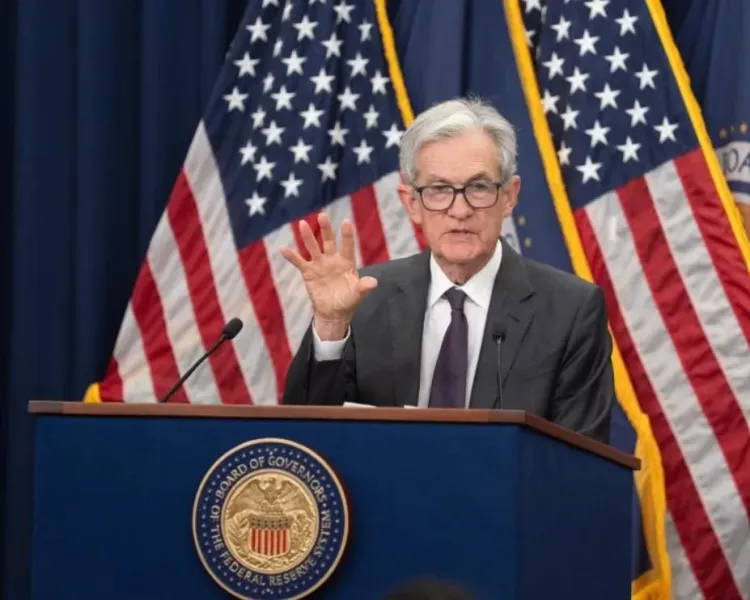Why Did the US Fed Maintain Interest Rates Amid Trump Administration Pressure?

Synopsis
Key Takeaways
- The US Fed maintains the federal funds rate at 4.25-4.5%.
- Pressure from the Trump administration continues to grow.
- The economy saw 3% growth in Q2.
- Inflation is a concern, with a 2.7% rise in June.
- The FOMC is committed to addressing employment and inflation goals.
Washington, July 31 (NationPress) The US Federal Reserve has chosen to maintain the target range for the federal funds rate at 4.25 percent to 4.5 percent, despite facing significant pressure and criticism from the Trump administration.
In a statement from the Federal Open Market Committee (FOMC), it was noted, "While fluctuations in net exports continue to impact data, recent signs indicate that the pace of economic growth has eased in the first half of the year. The unemployment rate remains low, and labor market conditions are stable. Inflation is still somewhat elevated."
The statement also highlighted that uncertainty regarding the economic outlook is notably high.
According to data released by the US Commerce Department, the economy grew at an annualized rate of 3 percent in the second quarter, recovering from a 0.5 percent contraction in the first quarter.
The FOMC emphasized its "strong commitment to fostering maximum employment and bringing inflation back to its 2 percent target."
In June, the US consumer price index increased by 2.7 percent compared to the previous year, marking the largest rise since February, which is attributed to tariff-induced inflation, as reported by Xinhua news agency.
Interestingly, among the 12 voting members of the FOMC, two voted in favor of a 25 basis point cut in the benchmark interest rate, while one Fed board member abstained from voting.
Fed Chair Jerome Powell stated during a press conference, "It appears to me, and to almost the entire committee, that the economy is not being unduly restrained by policy, and a modestly restrictive policy seems fitting."
He also mentioned that the Fed has not yet decided whether to reduce rates at its September meeting.
Powell commented, "Higher tariffs have started to be reflected in the prices of certain goods, but the overall impact on economic activity and inflation is still unclear."
He clarified that the Fed does not take into account the implications of rate changes on government finances, stating, "No central bank in an advanced economy does this... Doing so would undermine both our credibility and that of US fiscal policy."
On Wednesday, Trump reiterated his call for Powell to lower interest rates, citing positive GDP figures from the second quarter, stating, "No Inflation! Let people buy and refinance their homes!"









